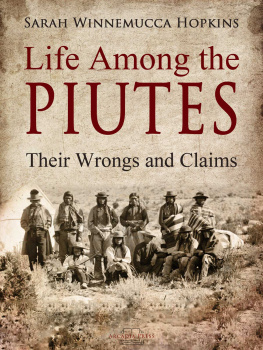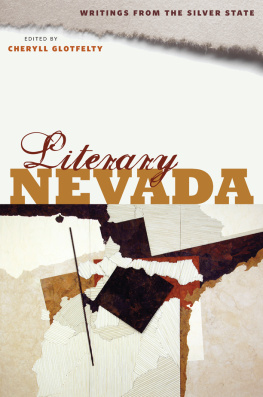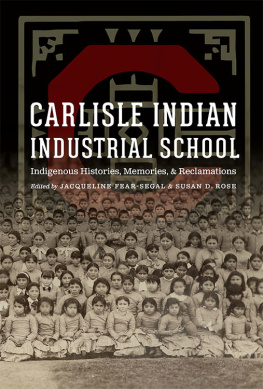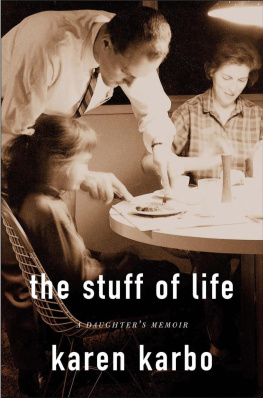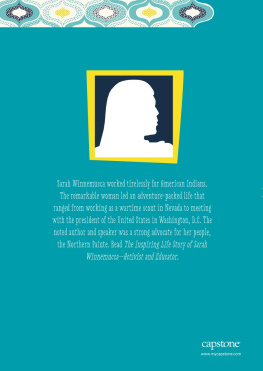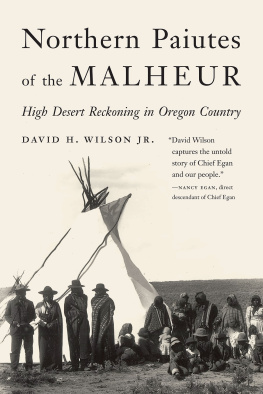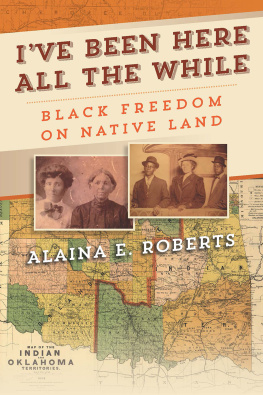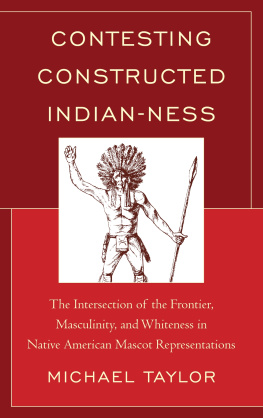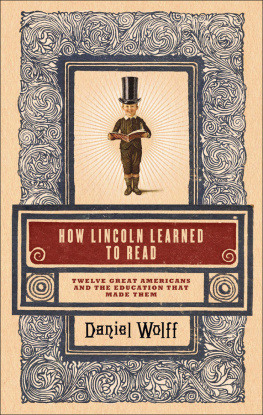EDITORS PREFACE.
MY editing has consisted in copying the original manuscript in correct orthography and punctuation, with occasional emendations by the author, of a book which is an heroic act on the part of the writer. Mrs. Hopkins came to the East from the Pacific coast with the courageous purpose of telling in detail to the mass of our people, extenuating nothing and setting down naught in malice, the story of her peoples trials. Finding that in extemporaneous speech she could only speak at one time of a few points, she determined to write out the most important part of what she wished to say. In fighting with her literary deficiencies she loses some of the fervid eloquence which her extraordinary colloquial command of the English language enables her to utter, but I am confident that no one would desire that her own original words should be altered. It is the first outbreak of the American Indian in human literature, and has a single aim totellthetruth as it lies in the heart and mind of a true patriot, and one whose knowledge of the two races gives her an opportunity of comparing them justly. At this moment, when the United States seem waking up to their duty to the original possessors of our immense territory, it is of the first importance to hear what only an Indian and an Indian woman can tell. To tell it was her own deep impulse, and the dying charge given her by her father, the truly parental chief of his beloved tribe.
M. M.
CHAPTER I.
FIRST MEETING OF PIUTES AND WHITES.
I WAS born somewhere near 1844, but am not sure of the precise time. I was a very small child when the first white people came into our country. They came like a lion, yes, like a roaring lion, and have continued so ever since, and I have never forgotten their first coming. My people were scattered at that time over nearly all the territory now known as Nevada. My grandfather was chief of the entire Piute nation, and was camped near Humboldt Lake, with a small portion of his tribe, when a party travelling eastward from California was seen coming. When the news was brought to my grandfather, he asked what they looked like? When told that they had hair on their faces, and were white, he jumped up and clasped his hands together, and cried aloud,
My white brothers, my long-looked for white brothers have come at last!
He immediately gathered some of his leading men, and went to the place where the party had gone into camp. Arriving near them, he was commanded to halt in a manner that was readily understood without an interpreter. Grandpa at once made signs of friendship by throwing down his robe and throwing up his arms to show them he had no weapons; but in vain, they kept him at a distance. He knew not what to do. He had expected so much pleasure in welcoming his white brothers to the best in the land, that after looking at them sorrowfully for a little while, he came away quite unhappy. But he would not give them up so easily. He took some of his most trustworthy men and followed them day after day, camping near them at night, and travelling in sight of them by day, hoping in this way to gain their confidence. But he was disappointed, poor dear old soul!
I can imagine his feelings, for I have drank deeply from the same cup. When I think of my past life, and the bitter trials I have endured, I can scarcely believe I live, and yet I do; and, with the help of Him who notes the sparrows fall, I mean to fight for my down-trodden race while life lasts.
Seeing they would not trust him, my grandfather left them, saying, Perhaps they will come again next year. Then he summoned his whole people, and told them this tradition:
In the beginning of the world there were only four, two girls and two boys. Our forefather and mother were only two, and we are their children. You all know that a great while ago there was a happy family in this world. One girl and one boy were dark and the others were white. For a time they got along together without quarrelling, but soon they disagreed, and there was trouble. They were cross to one another and fought, and our parents were very much grieved. They prayed that their children might learn better, but it did not do any good; and afterwards the whole household was made so unhappy that the father and mother saw that they must separate their children; and then our father took the dark boy and girl, and the white boy and girl, and asked them, Why are you so cruel to each other? They hung down their heads, and would not speak. They were ashamed. He said to them, Have I not been kind to you all, and given you everything your hearts wished for? You do not have to hunt and kill your own game to live upon. You see, my dear children, I have power to call whatsoever kind of game we want to eat; and I also have the power to separate my dear children, if they are not good to each other. So he separated his children by a word. He said, Depart from each other, you cruel children; go across the mighty ocean and do not seek each others lives.
So the light girl and boy disappeared by that one word, and their parents saw them no more, and they were grieved, although they knew their children were happy. And by-and-by the dark children grew into a large nation; and we believe it is the one we belong to, and that the nation that sprung from the white children will some time send some one to meet us and heal all the old trouble. Now, the white people we saw a few days ago must certainly be our white brothers, and I want to welcome them. I want to love them as I love all of you. But they would not let me; they were afraid. But they will come again, and I want you one and all to promise that, should I not live to welcome them myself, you will not hurt a hair on their heads, but welcome them as I tried to do.
How good of him to try and heal the wound, and how vain were his efforts! My people had never seen a white man, and yet they existed, and were a strong race. The people promised as he wished, and they all went back to their work.
The next year came a great emigration, and camped near Humboldt Lake. The name of the man in charge of the trains was Captain Johnson, and they stayed three days to rest their horses, as they had a long journey before them without water. During their stay my grandfather and some of his people called upon them, and they all shook hands, and when our white brothers were going away they gave my grandfather a white tin plate. Oh, what a time they had over that beautiful gift, it was so bright! They say that after they left, my grandfather called for all his people to come together, and he then showed them the beautiful gift which he had received from his white brothers. Everybody was so pleased; nothing like it was ever seen in our country before. My grandfather thought so much of it that he bored holes in it and fastened it on his head, and wore it as his hat. He held it in as much admiration as my white sisters hold their diamond rings or a sealskin jacket. So that winter they talked of nothing but their white brothers. The following spring there came great news down the Humboldt River, saying that there were some more of the white brothers coming, and there was something among them that was burning all in a blaze. My grandfather asked them what it was like. They told him it looked like a man; it had legs and hands and a head, but the head had quit burning, and it was left quite black. There was the greatest excitement among my people everywhere about the men in a blazing fire. They were excited because they did not know there were any people in the world but the two, that is, the Indians and the whites; they thought that was all of us in the beginning of the world, and, of course, we did not know where the others had come from, and we dont know yet. Ha! ha! oh, what a laughable thing that was! It was two negroes wearing red shirts!

